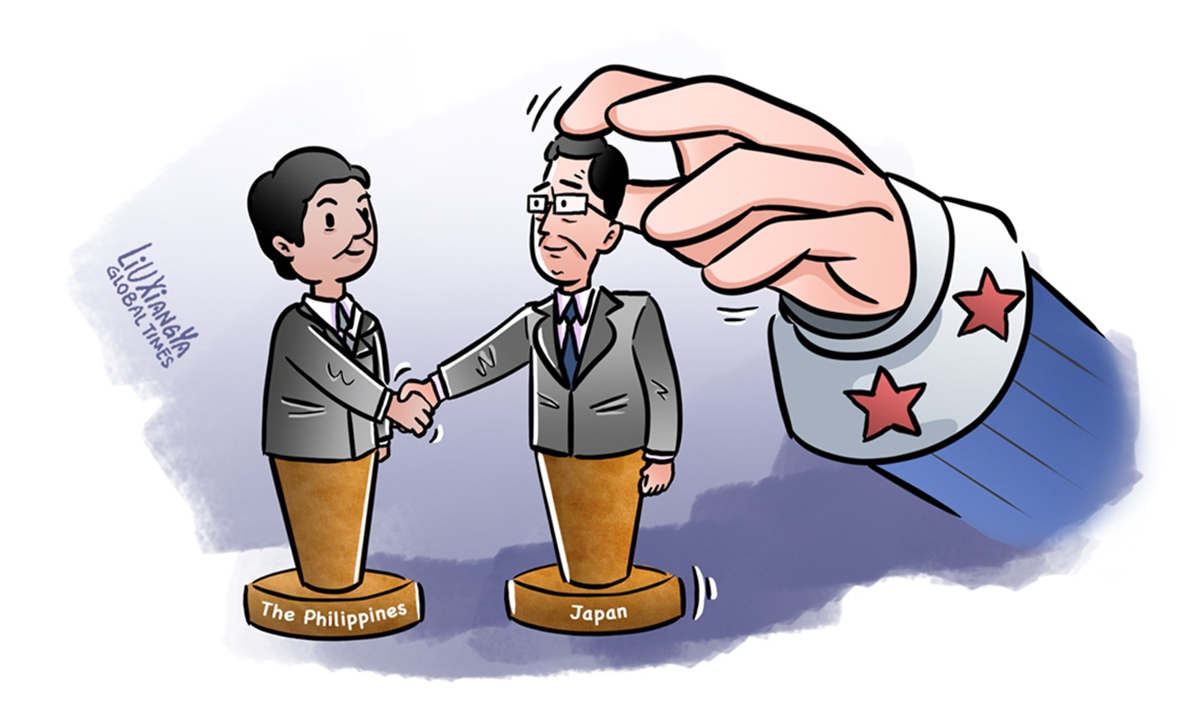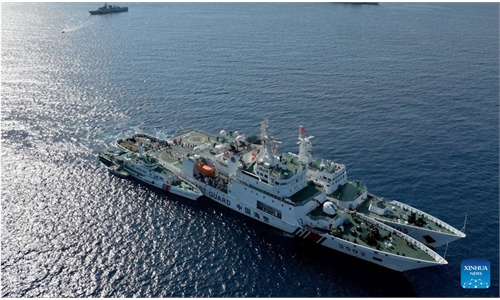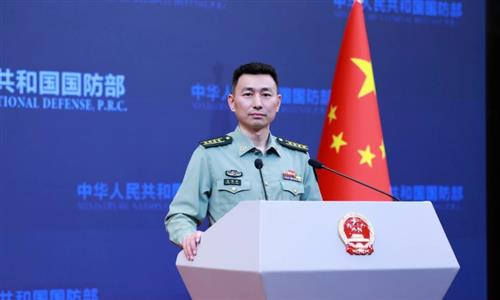Japan-Philippines plan to further bolster defense ties targeting China to heighten regional uncertainties: expert

Illustration: Liu Xiangya/GT
The Japanese government is reportedly planning a "2+2" meeting in July, bringing together the foreign and defense ministers of Japan and the Philippines to further accelerate negotiations on the Reciprocal Access Agreement (RAA) as well as weapon equipment exports to Manila. Some observers said that together with the US, Japan aims to encourage the Philippines to take a more confrontational stance against China, particularly concerning the South China Sea, which however, would introduce heightened uncertainties to the region.In the recent two days, Japanese media reported that the Japanese government is arranging the meeting involving Japanese Foreign Minister Yoko Kamikawa and Defense Minister Minoru Kihara, as well as Philippine Foreign Secretary Enrique Manalo and Secretary of National Defense Gilberto Teodoro in Manila in early July and claimed that such move "likely with China's maritime assertiveness in regional waters in mind."
If realized, the "2+2" meeting would be the second of its kind with the first one in 2022. Kyodo News reported that the two sides would discuss the RAA talks, which they started to push in November 2023. The expansion of Tokyo's defense equipment exports to Manila is also expected to be discussed at the "envisaged security dialogue."
The "2+2" meeting aims to further implement the agreement reached at the summit of the US, Japan and the Philippines in Washington in April on strengthening defense cooperation. An agreement on the RAA between Japan and the Philippines may also be reached by the end of the year, Xiang Haoyu, a research fellow at the China Institute of International Studies, told the Global Times on Thursday.
The RAA seeks to streamline procedures for deploying defense personnel, arms, and ammunition to signatory countries. Analysts said that the ongoing RAA negotiations signal a deepening of the security relationship between Japan and the Philippines, potentially evolving into a "quasi-alliance."
Through the RAA, Tokyo can expand its military influence, marking a significant development in Japan's efforts to transcend post-war military constraints. This agreement would also strengthen defense and security cooperation with partner nations, representing a crucial step forward in Japan's regional defense strategy, they noted.
Both Japan and the US attempt to assist the Philippines to strengthen its maritime law enforcement and defense capabilities, using it as a pawn to confront China in the South China Sea and further hyping so-called "China threat" to sow discord between China and ASEAN countries, according to Xiang.
If receiving more support from the US and Japan, especially military equipment, the Philippines may also intensify its provocative actions against China on the South China Sea issues, undermining the joint efforts China and other ASEAN countries have made for the peace and stability of the region, said Xiang.
Aside from making continuous provocations in the South China Sea, especially on the Ren'ai Jiao, Huangyan Dao, the Philippines is also strengthening interactions with external countries, including the US and Japan, attempting to draw support. And such moves have intensified the situation in the South China Sea and concerned regional countries.
For example, in April, the US, Japan, Australia and the Philippines held their first joint naval drills, including anti-submarine warfare training, in a show of force in the South China Sea.



